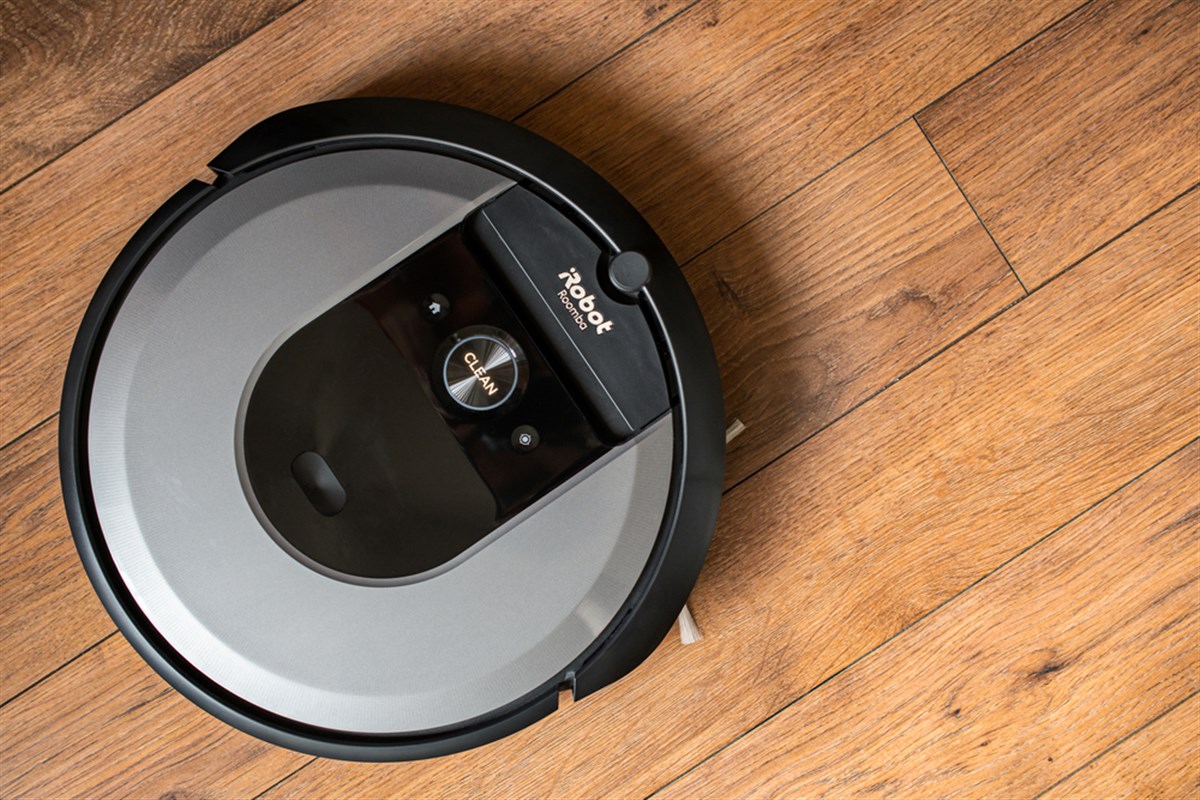iRobot rumble: Can Roomba hold its ground? Amazon's acquisition of iRobot faces challenges from the European Commission, affecting the smart home technology market.
This story originally appeared on MarketBeat

The proposed acquisition of iRobot (NASDAQ: IRBT) by e-commerce giant Amazon (NASDAQ: AMZN) has hit a major snag in the form of the European Commission's (EC) antitrust concerns. Despite the seemingly attractive $1.4 billion deal announced in August 2023, its approval hangs in the balance as Amazon remains resolute in its refusal to offer concessions to the EC.
This unwavering stance marks a pivotal moment in the saga surrounding the acquisition. In July 2023, the EC initiated an in-depth investigation, and a preliminary warning was issued in November 2023. The final 'statement of objections' is expected in February 2024. Amazon's refusal to offer remedies to alleviate these concerns further complicates the intricate regulatory landscape.
The potential consequences of Amazon's stance are multifaceted. Should the EC remain unconvinced, it could ultimately veto the deal altogether. This outcome would undoubtedly be a significant setback for both companies, with iRobot facing renewed financial pressures and Amazon missing out on a strategic opportunity to bolster its foothold in the smart home technology sector.
However, Amazon's defiance could also have broader implications for future mergers and acquisitions within the tech industry. It could be interpreted as a challenge to the authority of regulatory bodies, potentially emboldening other companies to adopt similar non-conciliatory approaches. This, in turn, could lead to a more protracted and adversarial regulatory environment, further delaying and complicating future deals.
The coming months will be crucial in determining the fate of the Amazon-iRobot acquisition. With the February 14, 2024, deadline for the EC's decision looming large, all eyes are on whether Amazon can navigate the complex regulatory labyrinth and secure the green light for its ambitious endeavor.
From humble bot to tech titan
Once a niche dominated by innovative startups, the robotic vacuum cleaner market has evolved into a battleground for tech giants. At the heart of this evolution lies iRobot, a pioneer in the field whose iconic Roomba brand became synonymous with robot-powered floor cleaning. Founded in 1990, iRobot carved its niche with meticulous engineering and user-friendly features, capturing a sizeable share of the market and establishing itself as a household name.
However, the tides are shifting because Amazon has set its sights on the lucrative home robot sector. Amazon's vast resources, data-driven marketing prowess, and established logistics network create a potent cocktail for market disruption. Their potential entry raises several intriguing questions:
- Competitive wakeup: Can established players like iRobot withstand the competitive pressure from a giant like Amazon? Will Amazon leverage its existing ecosystem of smart home devices to integrate robotic vacuums, creating a tightly knit and appealing package for consumers?
- Price wars and innovation: Amazon's notorious penchant for aggressive pricing could trigger a price war, potentially benefiting consumers but impacting profit margins for smaller players. Conversely, the competitive pressure could spur innovation as companies fight to differentiate themselves through advanced features and functionalities.
- Market expansion: Amazon's global reach and marketing muscle could significantly expand the market for robotic vacuums, bringing the technology to new audiences and regions. Expanding the market presents opportunities and challenges for existing players, who may need to adapt their strategies to cater to a broader and more diverse customer base.
Investor pulse: Dust bunnies or done deal?
The news of Amazon's unwavering stance against EU regulators in the iRobot acquisition has rippled through the investment community. This hardline approach has sparked a range of reactions and injected uncertainty into the equation. On the one hand, some investors view Amazon's defiance as a gamble, potentially jeopardizing the deal and casting a shadow over iRobot's future prospects. This apprehension has translated into a 19% dip in iRobot's stock price, reflecting investor analyst concerns about the deal's viability and the potential for protracted legal battles.
However, pockets of optimism have also emerged. For some, Amazon's resolute stance suggests a strong belief in the long-term value of the acquisition, indicating confidence in iRobot's technology and market potential. This perspective could lead to a rebound in iRobot's stock price once the regulatory dust settles, particularly if the deal ultimately receives approval.
Dirt cheap, or dust in the wind?
With the outcome of the Amazon-iRobot acquisition hanging in the balance, investors face a critical juncture. Should the deal be consummated, a spectrum of potential risks and rewards emerges, requiring careful consideration and strategic positioning.
Merger arbitrage: Betting on the unknown
For some investors, the potential for a successful acquisition presents a tantalizing opportunity in merger arbitrage. This strategy capitalizes on the price gap between the target company's (iRobot) current market value and the expected acquisition price set by the acquiring company (Amazon). In this case, the significant discount at which iRobot's stock trades makes it an attractive bet for arbitrageurs with a strong conviction in the deal's eventual approval. However, this approach carries inherent risks. The EC's decision may not unfold as anticipated, potentially exposing arbitrageurs to significant losses if the deal falls through.
Investing for the long haul
Beyond short-term bets, the deal's potential impact necessitates a broader analysis for long-term investors. Should the acquisition be successful, it could significantly alter the robotic vacuum cleaner market dynamics. Amazon's vast resources and technological prowess could propel the market to new heights, potentially benefiting both iRobot and the industry. However, such an outcome favors larger, established players, potentially squeezing out smaller competitors and impacting long-term profitability.
The standoff between Amazon and the European Commission over the iRobot acquisition highlights significant antitrust concerns in the tech industry. The outcome of this $1.4 billion deal could set a precedent for future tech mergers, impacting market competition and innovation in the smart home technology sector.









